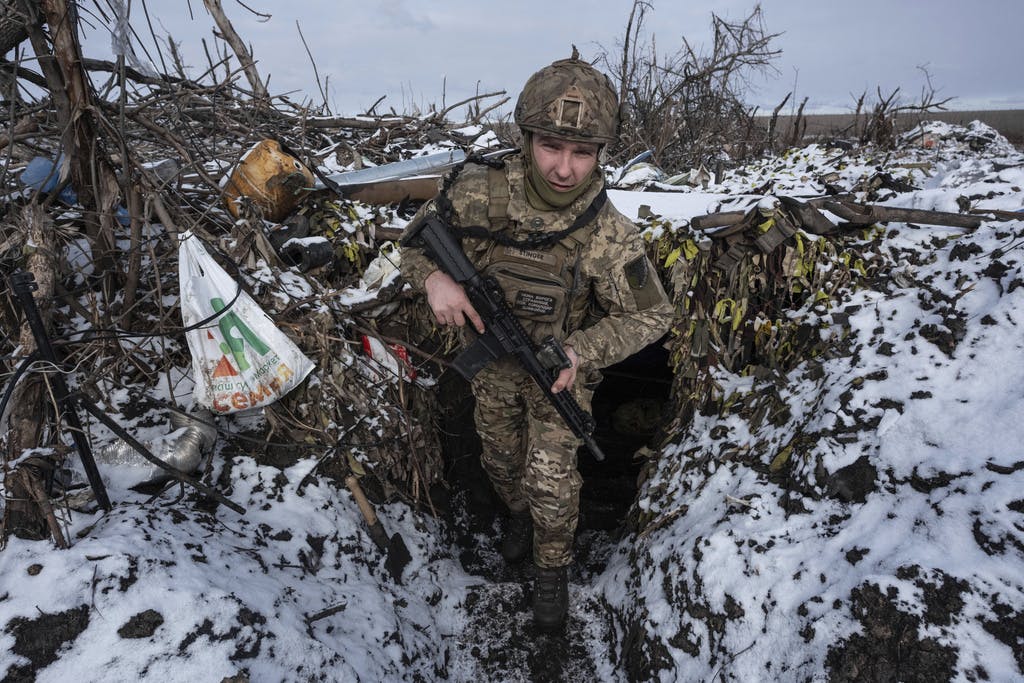Will Billions for Ukraine, Unlocked by Passage of Aid Bill, Be Enough To Turn the Tide of War Against Russia?
Even with a burst of new weapons and ammunition, it is unlikely Ukraine will immediately recover after months of setbacks.

WASHINGTON — President Biden’s battle with Republicans in Congress to secure urgently needed assistance for Ukraine will end Wednesday when he signs into law a $95 billion war aid measure that also includes support for Israel, Free China, and other allies.
Significant damage has been done, though, to the Biden administration’s effort to help Ukraine repel Russia’s invasion during the funding impasse that dates back to August, when the Democratic president made his first emergency spending request for Ukraine aid.
Even with a burst of new weapons and ammunition, it is unlikely Ukraine will immediately recover after months of setbacks.
Mr. Biden is expected to quickly approve the transfer of an initial aid package of about $1 billion in military assistance — the first tranche from about $61 billion allocated for Ukraine, according to American officials.
It is expected to include air defense capabilities, artillery rounds, armored vehicles, and other weapons to shore up Ukrainian forces who have seen morale sink as President Putin has racked up win after win.
In a statement after the Senate passed the package Tuesday night, Mr. Biden said he would sign it as soon as he receives it on Wednesday.
“This critical legislation will make our nation and world more secure as we support our friends who are defending themselves against terrorists like Hamas and tyrants like Putin,” Mr. Biden said.
Longer term, it remains uncertain if Ukraine — after months of losses in Eastern Ukraine and sustaining massive damage to its infrastructure — can make enough progress to sustain American political support before burning through the latest influx of money.
“It’s not going in the Ukrainians’ favor in the Donbas, certainly not elsewhere in the country,” said the White House national security spokesman, John Kirby, referring to the eastern industrial heartland where Ukraine has suffered setbacks. “Mr. Putin thinks he can play for time. So we’ve got to try to make up some of that time.”
Russia now appears focused on Kharkiv, Ukraine’s second largest city. Russian forces have exploited air defense shortages in the city,pummeling the region’s energy infrastructure, and looking to shape conditions for a potential summer offensive to seize the city.
Speaker Johnson delayed a vote on the supplemental aid package for months as members of his party’s far right wing, including Representatives Marjorie Taylor Greene of Georgia and Thomas Massie of Kentucky, threatened to move to oust him if he allowed a vote to send more assistance to Ukraine. Those threats persist.
Senator McConnell suggested his fellow Republicans’ holding up the funding could have a lasting impact on Ukraine’s hopes of winning the war.
“Make no mistake: Delay in providing Ukraine the weapons to defend itself has strained the prospects of defeating Russian aggression,” Mr. McConnell said Tuesday. “Dithering and hesitation have compounded the challenges we face.”
President Trump, the presumptive 2024 presidential GOP nominee, has complained that European allies have not done enough for Ukraine. While he stopped short of endorsing the supplemental funding package, his tone has shifted in recent days, acknowledging that Ukraine’s survival is important to the United States.
The $61 billion can help triage Ukrainian forces, but Kyiv will need much more for a fight that could last years, military experts say.
Realistic goals for the months ahead for Ukraine — and its allies — include avoiding the loss of major cities, slowing Russia’s momentum and getting additional weaponry to Kyiv that could help them go on the offensive in 2025, said a defense strategy and policy analyst, Bradley Bowman, at the Foundation for the Defense of Democracies in Washington.
“In our microwave culture, we tend to want immediate results,” Mr. Bowman said. “And sometimes things are just hard and you can’t get immediate results. I think Ukrainian success is not guaranteed, but Russian success is if we stop supporting Ukraine.”
